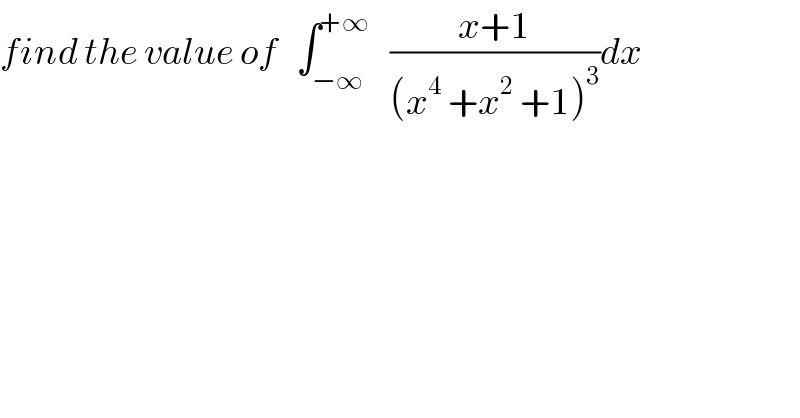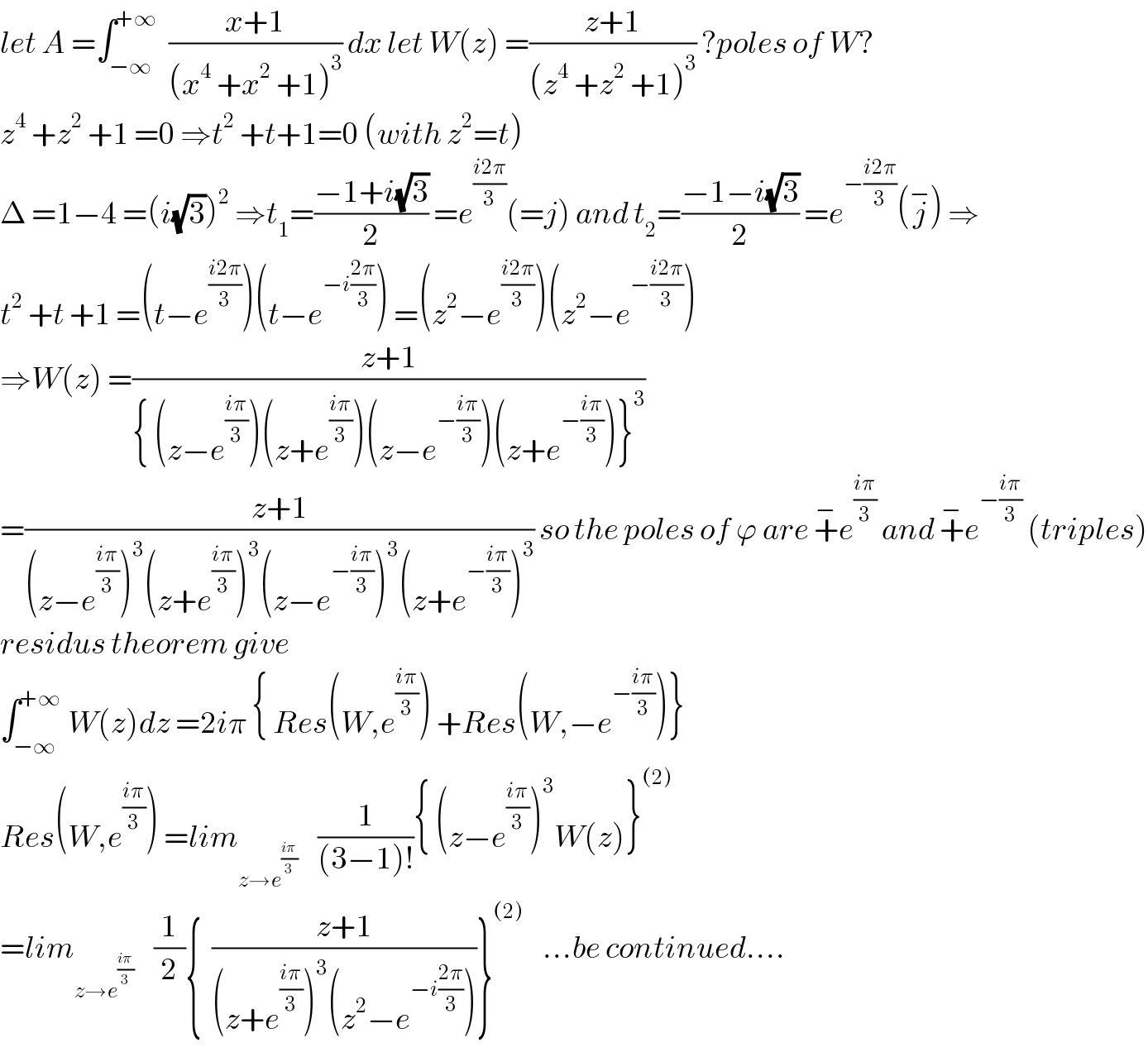
Question and Answers Forum
Question Number 62806 by mathmax by abdo last updated on 25/Jun/19

Commented by mathmax by abdo last updated on 27/Jun/19

| ||
Question and Answers Forum | ||
Question Number 62806 by mathmax by abdo last updated on 25/Jun/19 | ||
 | ||
Commented by mathmax by abdo last updated on 27/Jun/19 | ||
 | ||